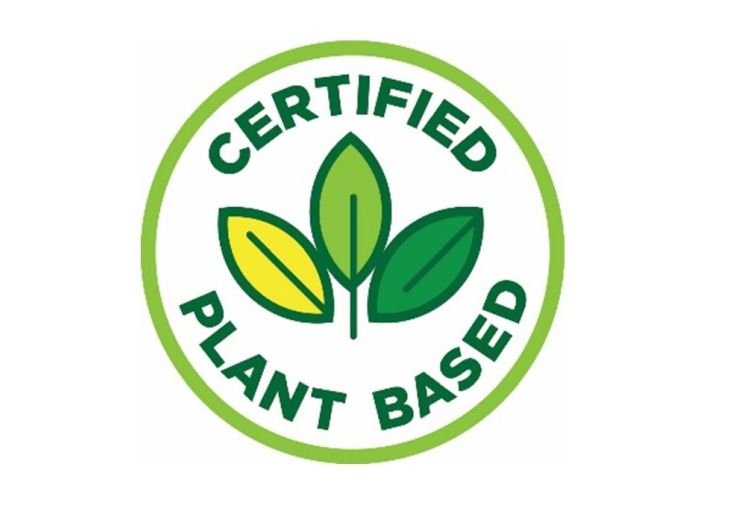The world of supplements has witnessed a remarkable shift towards plant-based options, reflecting a growing consumer interest in health, wellness, and sustainability. This article delves into the burgeoning market of plant-based supplements, exploring their origins, evolution, and the reasons behind their rising popularity. As we navigate through various aspects of these supplements, from their definition to their health benefits, we aim to provide a comprehensive understanding of why they are more than just a trend, but a significant part of a holistic approach to health.

1.Plant-Based Supplements: Definition and Background
1.1 What are Plant-Based Supplements
Plant-based supplements are nutritional products derived entirely from plant sources. These supplements offer an array of vitamins, minerals, proteins, and other essential nutrients, extracted from fruits, vegetables, herbs, seeds, and algae. Unlike their synthetic or animal-based counterparts, plant-based supplements are known for their natural composition and are often preferred for their perceived purity and alignment with vegan and vegetarian lifestyles.
1.2 Historical and Cultural Background
The concept of using plants for health is not new. Traditional medicine systems like Ayurveda and Traditional Chinese Medicine have long utilized plant-based ingredients for healing and wellness. However, the modern incarnation of plant-based supplements is a relatively recent development, coinciding with the rise of the wellness industry and a collective shift towards more natural and sustainable living practices.
In the past few decades, scientific advancements have allowed for more sophisticated extraction and processing techniques, making it possible to harness the nutritional power of plants in more concentrated and accessible forms. This progress, combined with a growing body of research on the benefits of plant-based diets, has propelled the popularity of these supplements to new heights.

2.Types and Sources of Plant-Based Supplements
2.1 Diversity in Plant-Based Options
Plant-based supplements come in a myriad of forms, each derived from different plant sources and catering to various health needs. Some of the most common types include:
A.Herbal Extracts: Concentrated forms of herbs like turmeric, ashwagandha, and echinacea, known for their medicinal properties.
B.Superfood Powders: These include spirulina, chlorella, and wheatgrass, packed with a high density of nutrients.
C.Plant Proteins: Sources like pea, and brown rice protein are popular among athletes and fitness enthusiasts.
D.Essential Fatty Acids: Supplements like flaxseed oil and algae oil provide vital omega-3 fatty acids, crucial for heart and brain health.
E.Vitamins and Minerals: Extracted from fruits, vegetables, and herbs, these supplements provide essential nutrients in a concentrated form.
2.2 Sourcing and Sustainability
The sourcing of plant-based supplements is a critical aspect, with sustainability and ethical practices playing a significant role. Many manufacturers prioritize organic and non-GMO sources, ensuring the purity and ecological integrity of their products. The traceability of ingredients is also a key factor, as it assures consumers of the product's origin and the sustainability of its production process.

3.Health Benefits and Applications of Plant-Based Supplements
3.1 A Spectrum of Wellness Advantages
Plant-based supplements offer a range of health benefits, making them a valuable addition to many diets. Some of the key benefits include:
A.Nutrient-Rich: They provide essential vitamins, minerals, and antioxidants, often lacking in modern diets.
B.Supports Digestive Health: Many plant-based supplements, such as those containing prebiotic fibers, aid in maintaining a healthy gut microbiome.
C.Heart Health: Ingredients like omega-3 rich algae oil contribute to cardiovascular health.
D.Immune Support: Herbal supplements can bolster the immune system, thanks to their natural anti-inflammatory and antimicrobial properties.
E.Sustainable and Ethical: For those concerned about the environmental and ethical implications of their dietary choices, plant-based supplements offer a more sustainable and cruelty-free option compared to animal-derived supplements.
F.Better bioavailability: Plant-based supplements are often more easily absorbed by the body than synthetic supplements, which can be difficult for the body to process [1].
G.Lower toxicity risk: Plant-based supplements are less likely to cause toxicity than synthetic supplements, which can be harmful in high doses [1].
H.Additional cofactors and co-nutrients: Plant-based supplements contain a wide range of vitamins, minerals, and other nutrients that work together to support overall health and well-being [1].
I.Natural smell and taste: Plant-based supplements often have a more pleasant smell and taste than synthetic supplements, which can be unappetizing [1].
J.Vegan: Plant-based supplements are suitable for vegans and vegetarians, who may have difficulty finding supplements that meet their dietary needs [1].
In addition to these benefits, plant-based supplements may also help reduce inflammation, improve gut health, and support healthy aging [1][2][3].
However, it is important to note that plant-based supplements are not a substitute for a healthy diet and lifestyle. It is always best to consult with a healthcare professional before taking any new supplements.
3.2 Applications of Plant-Based Supplements in Various Products
Adapting Plant-Based Ingredients Across Diverse Supplement Forms
A.Gummies: Plant-based gummies are a popular choice, especially for those who prefer a tastier and more enjoyable supplement experience. Ingredients like pectin (a fruit-derived alternative to gelatin) can be used to create vegan-friendly gummies. Flavors and colors derived from fruits and vegetables enhance their appeal without compromising on health.
B.Softgels: Traditionally, softgels have been made using gelatin, but there are now plant-based alternatives available. These vegan softgels can be filled with a variety of plant-derived oils and extracts, offering a cruelty-free option for supplements like omega-3s from algae or flaxseed oil.
C.Pills and Tablets: Plant-based binders and fillers can be used in the production of pills and tablets, making them suitable for vegan consumers. These can include cellulose derived from plants, and other natural ingredients that ensure the integrity and effectiveness of the supplement.
Incorporating plant-based ingredients into these products not only aligns with ethical and environmental values but also caters to a growing market segment that prefers plant-based options.
3.3 Side Effects of Plant-Based Supplements
Understanding the Potential Risks and How to Mitigate Them
While plant-based supplements are generally considered safe and beneficial, it's important to be aware of potential side effects and how to mitigate them. Here are some key points to consider:
A.Allergic Reactions: Some individuals may have allergies to certain plant-based ingredients. Symptoms can range from mild (such as skin rashes) to severe (like anaphylaxis). It's crucial to check ingredient lists and be aware of any personal allergies.
B.Interactions with Medications: Certain plant-based compounds can interact with prescription medications, either enhancing or inhibiting their effects. It's advisable to consult with a healthcare provider before starting any new supplement, especially if you are on medication.
C.Digestive Issues: Some plant-based supplements, especially those high in fiber, can cause digestive discomfort such as bloating, gas, or diarrhea. Starting with lower doses and gradually increasing can help the body adjust.
D.Purity and Contamination: As with any supplement, there's a risk of contamination or the presence of harmful substances. Choosing supplements from reputable brands with third-party testing can reduce this risk.
E.Overconsumption: Excessive intake of certain vitamins and minerals, even from plant sources, can lead to adverse effects. Following recommended dosages is important to avoid potential toxicity.
F.Quality and Source Variability: The efficacy and safety of plant-based supplements can vary depending on the quality and source of the ingredients. Opting for standardized extracts and products with certifications can ensure consistency and safety.
By being informed and cautious, consumers can enjoy the benefits of plant-based supplements while minimizing potential risks. It's always recommended to consult with a healthcare professional before beginning any new supplement regimen, particularly if you have existing health conditions or concerns.

4.Production and Quality Standards of Plant-Based Supplements
4.1 Ensuring Integrity and Efficacy in Plant-Based Supplement Manufacturing
A.Sourcing of Ingredients: The production of plant-based supplements begins with the sourcing of high-quality, plant-derived ingredients. These ingredients should be ethically sourced, ensuring sustainability and minimal environmental impact.
B.Manufacturing Process: The manufacturing process for plant-based supplements requires adherence to strict quality standards. This includes clean, controlled environments to prevent contamination and ensure the purity of the supplements.
C.Quality Control: Rigorous testing is essential to verify the potency and purity of plant-based ingredients. This includes testing for contaminants such as heavy metals, pesticides, and allergens to ensure product safety.
D.Certifications: Obtaining certifications like USDA Organic, Non-GMO Project Verified, and Vegan certifications can add credibility and trustworthiness to plant-based supplements. These certifications assure consumers of the product's adherence to specific quality and ethical standards.
E.Packaging: Eco-friendly and sustainable packaging options are often chosen for plant-based supplements, aligning with the environmental ethos of the product. This can include recyclable or biodegradable materials.
4.2 Certification Processes for Plant-Based Supplements
- Application and Documentation: The certification process typically begins with an application to a recognized certifying body. This involves submitting detailed documentation about the product, including its ingredients, sourcing, and manufacturing processes.
- Inspection and Auditing: A thorough inspection and auditing process is conducted to ensure that the manufacturing facilities comply with the standards set by the certifying body. This may include on-site visits, review of production processes, and examination of quality control measures.
- Ingredient Verification: Each ingredient used in the supplement is scrutinized to ensure it meets the criteria for being plant-based. This includes verifying the source of the ingredients and ensuring they are free from animal products or by-products.
- Testing for Contaminants: Supplements are tested for contaminants such as pesticides, heavy metals, and other harmful substances. This step is crucial to ensure the safety and purity of the final product.
- Label Review: The product's labeling and marketing materials are reviewed to ensure they accurately represent the supplement and do not make unfounded health claims. This includes verifying that the labels correctly indicate the plant-based nature of the product.
- Certification Approval: If the product meets all the required standards, the certifying body will issue a certification. This certification often needs to be renewed periodically, requiring ongoing compliance with the set standards.
- Continuous Compliance: Post-certification, companies must maintain continuous compliance with the standards. This includes regular audits and potential re-testing of products to ensure ongoing adherence to the certification requirements.
5.Market Trends and Consumer Insights in Plant-Based Supplements
Understanding the Evolving Landscape of Plant-Based Supplement Demand
A.Growing Demand: There is a significant increase in consumer demand for plant-based supplements, driven by factors like health consciousness, ethical concerns, and environmental awareness.
B.Consumer Preferences: Consumers are increasingly looking for transparency in ingredient sourcing and manufacturing processes. They prefer products that are not only effective but also align with their values.
C.Innovation in Products: The market is seeing a surge in innovative plant-based supplement products, catering to specific health needs and lifestyle choices. This includes specialized formulations for immunity, energy, stress relief, and more.
D.Educated Consumers: Today's consumers are more informed and are seeking detailed information about the supplements they consume. This includes understanding the source, benefits, and potential side effects of plant-based ingredients.
E.Digital Influence: Online platforms and social media play a significant role in shaping consumer opinions and trends in the plant-based supplement market. Influencer endorsements and digital marketing strategies are increasingly important.

6.The Future of Plant-Based Supplements
Innovations and Trends Shaping the Industry
A.Increased Demand for Transparency: As consumers become more health-conscious, the demand for transparency in sourcing and production processes is expected to rise. This will lead to more brands adopting transparent labeling and traceability of ingredients.
B.Technological Advancements: Advancements in biotechnology and extraction methods will enable manufacturers to isolate and utilize novel plant-based compounds, enhancing the efficacy and range of supplements available.
C.Sustainability Focus: The industry is likely to see a greater emphasis on sustainability, with more brands sourcing ingredients from sustainable farms and adopting eco-friendly packaging solutions.
D.Customization and Personalization: With the rise of personalized nutrition, plant-based supplements will increasingly be tailored to individual health needs and preferences, possibly using AI and machine learning to create customized supplement regimens.
E.Expansion into New Markets: As awareness of plant-based diets grows globally, these supplements will likely see increased demand in emerging markets, leading to a broader global reach.
F.Integration with Digital Health: The integration of supplements with digital health platforms, such as apps that track nutrition and wellness, will provide consumers with a more holistic approach to health management.
Conclusion
Embracing the Plant-Based Revolution for Health and Sustainability
The world of supplements is undergoing a significant shift towards plant-based options, driven by consumer demand for healthier, more sustainable products. This shift is not just a trend but a reflection of a deeper understanding of the interconnectedness of our health and the environment. As we look to the future, plant-based supplements stand at the forefront of innovation, offering promising prospects for both personal wellness and the health of our planet. Embracing this plant-based revolution is not only beneficial for individual health but also aligns with a global movement towards sustainability and ethical consumption.
References:


